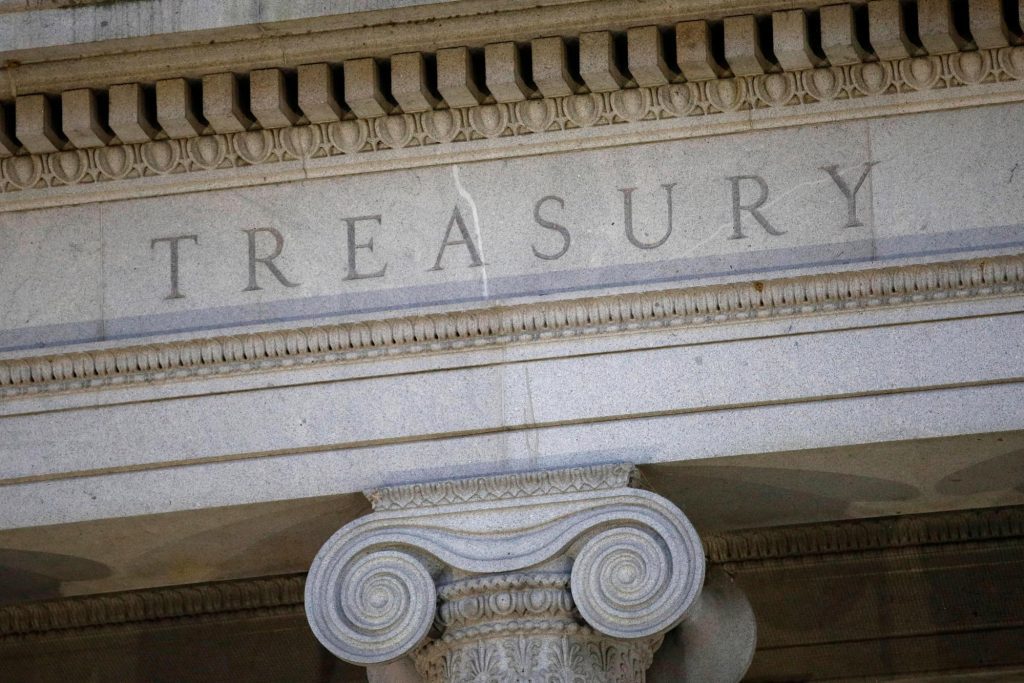By FATIMA HUSSEIN (Associated Press)
WASHINGTON (AP) — The U.S. and U.K. have put on a new set of penalties on Iran because of worries that Tehran's unprecedented assault on Israel could spark a broader war in the Middle East. unprecedented attack on Israel could fuel a wider war in the Middle East.
The Treasury's Office of Foreign Assets Control focused on 16 individuals and two organizations in Iran that make engines for the drones used in the April 13 attack on Israel. In addition, OFAC punished five companies involved in steel production and three subsidiaries of Iranian automaker Bahman Group, which is accused of providing significant support to Iran's military and other blacklisted groups. A Bahman representative was not available for comment at the time. April 13 attack on Israel. Additionally, the U.K. is targeting several Iranian military branches and individuals involved in Iran's drone and ballistic missile industries.
President Joe Biden mentioned that he had ordered the U.S. Treasury to continue imposing sanctions that further weaken Iran's military industries. He also warned those who aid Iran's attacks that necessary action will be taken to hold them accountable.
Meanwhile, U.K. Prime Minister Rishi Sunak stated that the sanctions will further restrict Iran's ability to disrupt the region.
In addition to the Treasury's sanctions, the U.S. Commerce Department is implementing new controls to limit Iran's access to basic commercial grade microelectronics, which include items manufactured outside the U.S. using U.S. technology.
The actions come after U.S. officials earlier this week warned that they were readying new sanctions in response to Iran's activity in the region and to prevent future attacks, while lawmakers on Capitol Hill have been quickly pushing forward legislation to financially penalize the Islamic Republic and its leaders.
The actions follow warnings of forthcoming sanctions in response to Iran's activities in the region and in an effort to deter future attacks. warned that they were readying new sanctions in response to Iran's activity in the region and to prevent future attacks. Lawmakers on Capitol Hill also have been quickly pushing forward legislation that would financially punish the Islamic Republic and its leaders.
Iran's attack on Israel early Sunday was a response to what it claims was an Israeli strike on Iran’s consulate in Syria earlier this month. Israel's military chief indicated Monday that his country will retaliate to the Iranian attack, while world leaders advise against retaliation to avoid a cycle of violence.
European Union leaders have also pledged on Wednesday to increase sanctions on Iran, targeting its drone and missile deliveries to proxies in Gaza, Yemen, and Lebanon. also vowed on Wednesday to ramp up sanctions on Iran, targeting its drone and missile deliveries to proxies in Gaza, Yemen, and Lebanon.
EU foreign policy chief Josep Borrell stated that the existing EU sanctions would be strengthened and expanded to punish Tehran and help prevent future attacks on Israel. At the same time, he stated that Israel needed to show restraint.
“I don’t want to exaggerate, but we are on the edge of a war, a regional war in the Middle East, which will be sending shockwaves to the rest of the world, and in particular to Europe,” he warned. “So stop it.”
The U.S. has already imposed penalties on hundreds of entities and individuals in Iran — from the central bank and government officials to drone producers and money exchangers — accused of materially supporting Iran's Revolutionary Guard and foreign militant groups such as Hamas, Hezbollah, and the Houthis.
U.S. efforts to reduce Iran's earnings from oil and petroleum products have been going on for many years.
There's still uncertainty about how effective the sanctions have been in stopping Iran from increasing its military equipment production. American defense officials claim that Iran is supplying drones to Russia for its invasion of Ukraine, which has been going on for three years.
Earlier this week, Treasury Secretary Janet Yellen stated in a press conference that the U.S. has been working to decrease Iran's ability to sell oil.
She mentioned that there might be more actions that the U.S. could take.









